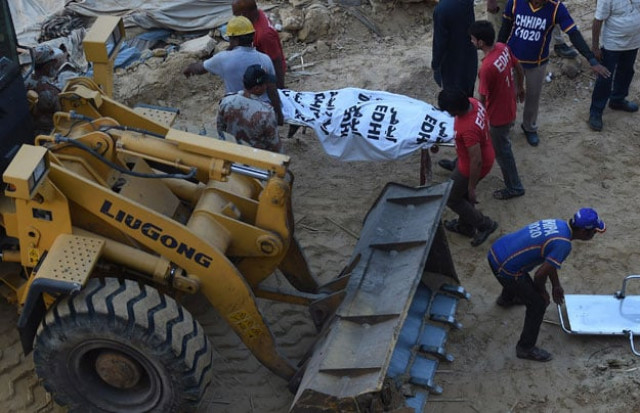Karachi rockslide tragedy
The incident highlights the dangers and difficulties associated with living in informal housing

The incident highlights the dangers and difficulties associated with living in informal housing. PHOTO: AFP
Pakistanis, in general, are moving from being a predominantly rural population living in small, self-sustaining settlements to being urbanites, working in the formal or informal economies and requiring housing and all that goes with it — drains, roads, sewers, potable water, retail outlets, schools, medical facilities and a rudimentary administration. A report from 2014 points out that 68 per cent of people, those in low-paid jobs earning between Rs8,000 and Rs30,000, were unable to own a house in the formal sense, driving them into the katchi-abadi culture. Housing development has concentrated on providing for the middle and upper classes, with affordable housing being low on the agenda of both government and private developers. Karachi is growing at around two per cent a year, meaning 360,000 more people to house annually and the vast majority are in the lower income bracket. Some informal communities are able to organise themselves, but often fall prey to the assorted mafias that control water supplies, among other utilities. The people who lost their lives in the rockslide were victims of their own desire for a better life. Poor as they were and outside the envelope for affordable housing, they built themselves a rough shelter that turned out to be sited in the wrong place at the wrong time. The adequate housing of the urban poor is the next big issue for Pakistan. The time is past for stop-gaps and the turning of blind eyes — build affordable housing.
Published in The Express Tribune, October 14th, 2015.
Like Opinion & Editorial on Facebook, follow @ETOpEd on Twitter to receive all updates on all our daily pieces.















COMMENTS
Comments are moderated and generally will be posted if they are on-topic and not abusive.
For more information, please see our Comments FAQ